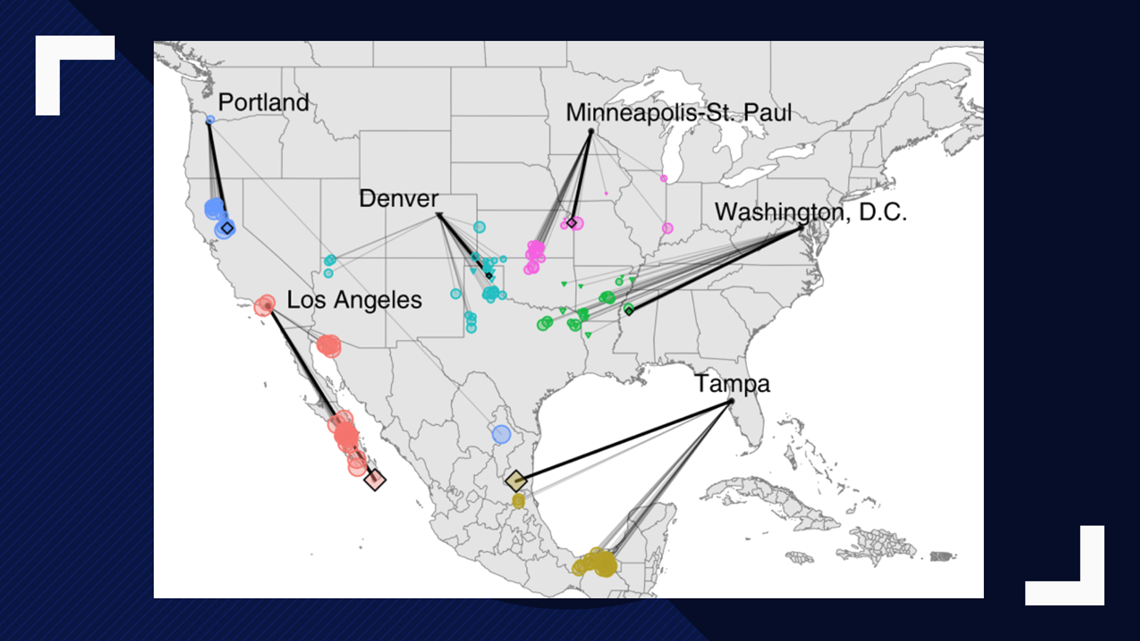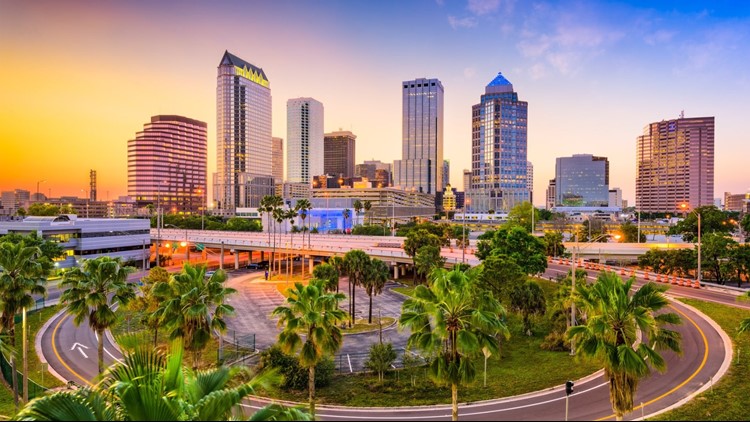TAMPA, Fla. — If warmer and more humid summers are most preferred, stick around until 2080: Climate change is bound to play a significant role in many Florida cities.
It's not just the Sunshine State, as most of the continent will somehow be affected by a changing planet, according to a recent study by the University of Maryland Center for Environmental Science as published in Nature Communications. It found climate analogs -- comparing one area's current climate to another in the future -- for 540 urban areas across North America.
The study also considered what would happen if emissions are continued at their current rate or are significantly reduced.
Take Tampa, for example. If emissions are high, the city is forecast to be about 5.2 degrees warmer and 19.1 percent wetter during the summer, like that currently in Ciudad Mante, Mexico.
Should policies be enacted and enforced to curb the effects of climate change, Tampa's summertime climate could more so be like Iona, Florida (located in the Naples area): Only 0.6 degrees warmer but 15.7 percent wetter.
An interactive map shows users what could happen to their own hometowns, using an average of 27 individual forecasts.


Generally, if climate change runs rampant, the study found a lot of the East Coast will feel like what the South feels now, and the South will feel a lot like Mexico.
RELATED: President Trump dismisses climate change because it's cold outside, but NOAA proves why he's wrong
One of the study's co-authors, Matt Fitzpatrick, wanted to make sense of all the recent discussion of a changing climate.
“I kept constantly hearing in the media about a 3°C increase in mean global temperature, or about the Paris Climate Accord keeping the change to 1.5°C," said Fitzpatrick, speaking with Popular Science. "That just never resonated with me."
What other people are reading right now:
►Make it easy to keep up-to-date with more stories like this. Download the 10News app now.
Have a news tip? Email desk@wtsp.com, or visit our Facebook page or Twitter feed.



